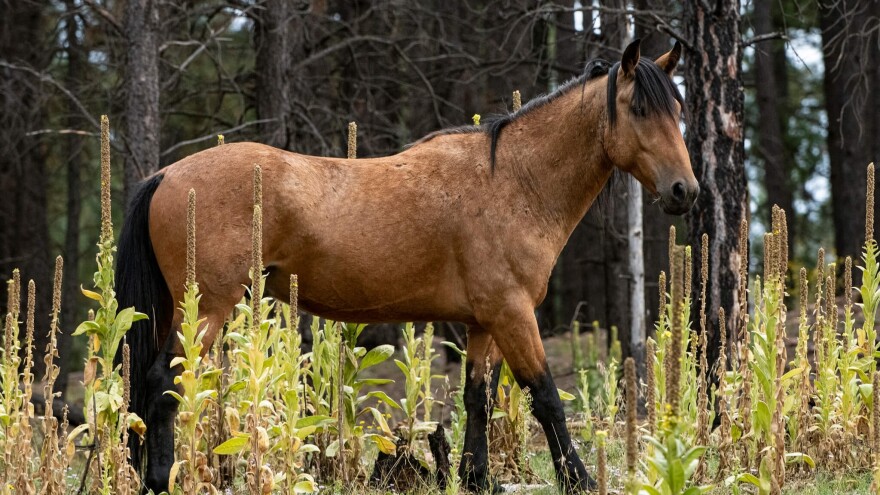The Oregon Department of Agriculture is taking precautions after an outbreak of a serious strain of Equine Herpes at barrel racing and rodeo events in Texas and Oklahoma.
Officials say seven Oregon animals were exposed and have been quarantined, but show no signs of infection.
State Veterinarian Ryan Scholz says most horses are carrying Equine Herpes, but sometimes more serious strains can circulate.
“It causes a fever, it causes sniffles, it causes coughing, those types of respiratory symptoms,” Scholz said. “But every once in a while there are strains that will develop a mutation that attack the central nervous symptom, and that’s what we’re seeing here.”
That disease is known as EHM or Equine herpesvirus myeloencephalopathy. Infections have been detected in the state before, but there are no current known cases.
“We’re urging informed caution right now,” Scholz said.
Oregon has enacted emergency rules that include detailed record keeping requirements for equine events, the involvement of a veterinarian in equine events, and designated isolation space.
Those temporary rules will last six months, but the state is working on longer-term requirements similar to restrictions created to prevent the spread of Avian Influenza adopted for other livestock shows.
In addition to those precautions, Scholz recommends that anyone who works with horses, or any livestock, wash their hands often and avoid sharing tack. Humans can’t contract the virus, but can spread it to other horses.
He said keeping a close eye on the health of a horse, or any other show animal, before an event, and isolating them from the rest of the herd or flock for 30 days afterwards is also effective.
“Those things that you can do to isolate your animal from other animals while they’re at events can go a really long way,” Scholz said.
More information about Oregon's efforts to address Equine Herpes are available on the Oregon Department of Agriculture's website.





